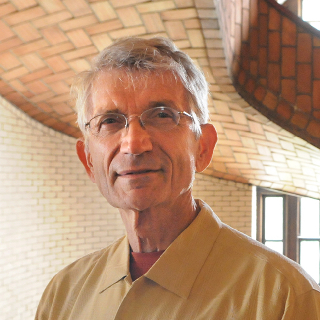Keynote Talk:
Limits on Success in Second Language Learning
Some learners of second languages manage to attain near-native levels of competence, whereas others settle for very incomplete levels even after decades of using a second language. This wide variation in adult attainment contrasts sharply with the uniform success that children have in learning their first language, suggesting that there is a critical period for language learning that expires sometime during early adolescence. Accounts for this decline have considered the impact of biological mechanisms such as lateralization, myelination, metabolic decline, synaptic pruning, and changes in NMDA receptor subtype, as well as network features such as entrenchment and gang effects. None these accounts can explain the full range of patterns of success and failure across the areas of phonological, lexicon, syntax, intonation, and conversational pragmatics.
The Unified Competition Model refocuses this discussion in terms of the dynamic interplay between a set of risk factors facing adult learners and a set of protective or support factors that they can use to overcome the barriers established by the risk factors. The risk factors are entrenchment, transfer, overanalysis, and social isolation. The support factors combating these risks are resonance, decoupling, chunking, and participation. The operation of each of these processes can be modeled by collecting data from experimentation and corpus analysis. By examining in detail the differential operation of each of these factors on each linguistic level, we can gain a fuller picture of differences in patterns of second language acquisition in adulthood from which we can formulate effective ways of improving learning success.
|
About the speaker
Brian MacWhinney is Professor of Psychology, Computational Linguistics, and Modern Languages at Carnegie Mellon University. He received his Ph.D. in psycholinguistics in 1974 from the University of California at Berkeley. With Elizabeth Bates, he developed a model of first and second language processing and acquisition based on competition between item-based patterns. In 1984, he and Catherine Snow co-founded the CHILDES (Child Language Data Exchange System) Project for the computational study of child language transcript data. The TalkBank Project extends these methods to additional language areas such as aphasiology, second language learning, TBI, Conversation Analysis, and others. MacWhinney’s recent work includes studies of online learning of second language vocabulary and grammar, situationally embedded second language learning, neural network modeling of lexical development, fMRI studies of children with focal brain lesions, and ERP studies of between-language competition. He is also exploring the role of grammatical constructions in the marking of perspective shifting, the determination of linguistic forms across contrasting time frames, and the construction of mental models in scientific reasoning.
|
